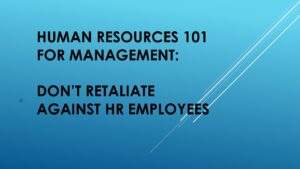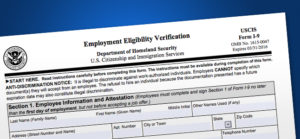 On May 8, 2012, the Pregnant Workers Fairness Act was introduced in the U.S. House of Representatives (H.R. 5647). This proposed legislation would require employers to be more flexible in providing accommodations often associated with pregnancy (e.g. light duties restrictions, time off for medical appointments, etc.). One might ask if another piece of legislation is needed when pregnant workers are already covered under the Pregnancy Discrimination Act, which amended Title VII to cover pregnancy, childbirth and pregnancy-related medical care under sex discrimination. The simple answer is yes.
On May 8, 2012, the Pregnant Workers Fairness Act was introduced in the U.S. House of Representatives (H.R. 5647). This proposed legislation would require employers to be more flexible in providing accommodations often associated with pregnancy (e.g. light duties restrictions, time off for medical appointments, etc.). One might ask if another piece of legislation is needed when pregnant workers are already covered under the Pregnancy Discrimination Act, which amended Title VII to cover pregnancy, childbirth and pregnancy-related medical care under sex discrimination. The simple answer is yes.
The unfortunate reality is that some employers are resistant in accommodating pregnant workers’ medical restrictions. These restrictions may limit the amount of lifting or amount of time standing, sitting, bending, etc. Rather than providing these reasonable accommodations, some employers are quick to place pregnant employees on unpaid medical or personal leave. This not only denies the pregnant worker of her salary, it also deprives her of much needed medical or family leave after childbirth. For example, if a pregnant employee is qualified under the Family and Medical Leave Act, she is entitled to take up to twelve (12) weeks of leave. Expectant mothers will often save this leave, and start their “maternity leave” a week or two before delivery, and use the remainder post-partum. If however, an employer refuses to allow a pregnant employee to work light duty, this worker will be forced to use all twelve (12) weeks of protected leave prior to delivery, and have no available leave to care for her new born. Once FMLA leave is expired, an employer is no longer required to keep her job open, and can terminate the worker.
Some employers also have policies where they permit light duty for employees who suffer work-related injuries, but not pregnant employees. In Reeves v. Swift Transportation Co., the plaintiff was a truck driver, who after becoming pregnant, was placed on light duty by her physician and not permitted to lift more than 20 pounds. The job duties for a truck driver, however, included pushing or pulling a dolly with freight weighing up to 200 lbs. (although Reeves testified she never saw anyone push or pull this amount of weight). Swift had a policy that only permitted light duty work for employees injured on the job, but light duty was not permitted for non-work related injuries, illnesses, or pregnancy. Unable to fully perform her job duties, and not eligible for FMLA leave, Reeves’ employment was terminated. Reeves asserted that Swift’s light duty policy was per se pregnancy discrimination. The Sixth Circuit Court of Appeals disagreed, holding that the policy was “pregnancy blind” and that Swift had uniformly applied its policy to all non-work related injuries and illnesses, whether the workers were pregnant or not.
The Reeves case sounds reasonable in theory, but such policies do adversely impact pregnant employees. If Reeves had a disability, her employer would have been required to reasonably accommodate the same work restrictions under the Americans with Disabilities Act (ADA). Pregnancy, however, is not a disability under the ADA. The Pregnant Workers Fairness Act would fill this gap. Specifically, employers would be required to reasonably accommodate “the known limitations related to the pregnancy, childbirth, or related medical conditions” unless they could demonstrate an undue hardship. In the Reeves case, it would have been difficult for the employer to have shown an “undue hardship” in providing light duty to pregnant employees, when it was already providing the same accommodations to other employees injured on the job.
“The family unit plays a critical role in our society and in the training of the generation to come.”
– Sandra Day O’Connor, Former U.S. Supreme Court Justice





